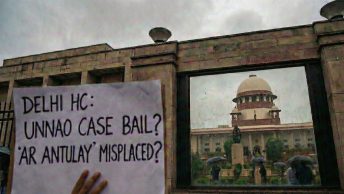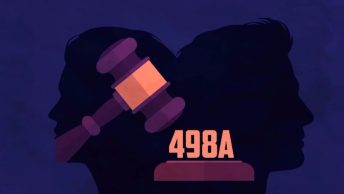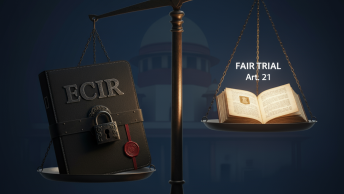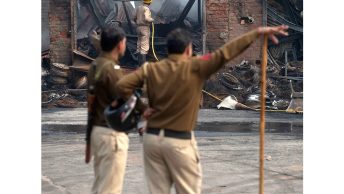This article has been authored by Siddhant Ranjan.
Background
Jayaraj and his son J. Beniks were allegedly sexually assaulted and tortured to death by police officials in Sathamkulam, Tamil Nadu. The media was full of harrowing details about the assault. This incident occurred mere days after the extra-judicial killing of African-American man George Floyd in the United States sparked raging protests across the globe. The COVID-19 lockdown also witnessed arbitrary state violence across India. In fact, research shows police brutality to have become a systemic issue in India. The situation necessitates an urgent reassessment of the efficacy of existing laws against police excesses in our country. However, without undermining this pressing need, we must still look at a body which has the potential to solve a lot of problems, namely, the Police Complaints Authority (‘PCA’ hereinafter).
Police Complaints Authorities: An Overview
The Supreme Court, in the case of Prakash Singh v. Union of India, mandated the setting up of a PCA at the district level as well as at the state level. The Second Administrative Reforms Commission also observed the absence of independent oversight authorities that would have the responsibility of addressing cases of police misconduct. The recommendations of the Apex Court and the Second Administrative Reforms Commission were then incorporated into the Model Police Act, 2006 (‘Act’ hereinafter), prepared by the Soli Sorabjee Committee. Chapter XIII of the Act provides exhaustive details regarding all aspects of PCAs.
The PCAs are essentially oversight bodies which are to adjudicate upon allegations against police officials over a wide range of matters, importantly including custodial torture and other forms of police excesses. §160 of the Act mandates the composition of a defined 5-member Police Accountability Commission (nomenclature given to state-level PCA by the Act) which is to be headed by a retired High Court judge. The functions of a Police Accountability Commission (‘Commission’ hereinafter), as stipulated by §167 of the Act, include, inter alia, inquiring directly into allegations of “serious misconduct” against police personnel and having oversight over relevant departmental inquiries.
The Act provides that in cases being inquired by the Commission directly, it has all the powers of a civil court as defined by the Code of Civil Procedure, 1908. These powers include the power to summon witnesses, examine them on oath, receive evidence on affidavits, etc. The Supreme Court has even recognized the PCAs’ need for regular staff in order to conduct field enquiries. To this end, the judgement allows them to utilize the services of retired investigators from the CID, Intelligence, Vigilance, or any other organisation.
Upon completion of the inquiry, the Commission is to communicate its findings to the Director General of Police and the State Government. This communication is also to include directions to register an FIR and/or initiate departmental action based on the findings. These directions are binding, subject to two provisos which pertain to giving the DGP an opportunity to present additional facts and the Commission’s consideration thereof. The Commission’s power of monitoring departmental inquiries also comes into play if it directs the initiation of departmental action post its inquiry. This again works towards ensuring that justice is administered.
Abysmal Implementation
The Commonwealth Human Rights Initiative (CHRI) conducted an extensive research pertaining to the on-ground situation with regard to PCAs. It yielded awfully disappointing results. The report states that there are only six states and four union territories where PCAs are operational. Shockingly, there is only one state, Kerala, where the PCAs function at both the district and state levels. The need of the hour is to set up functional PCAs in each and every district and state.
Another study conducted by the Centre for Law and Policy Research has found that PCAs lack even basic investigatory powers in most states. Unfortunately, this starkly contrasts with the significant powers granted to PCAs in this regard by the Supreme Court of India.
Moreover, some states (like Himachal Pradesh, Goa, and Orissa) have vested the powers and functions of the PCAs with other oversight bodies such as the Lokayukta of the state. This defeats the very spirit of PCAs being independent bodies. According to a report by the NITI Aayog, the composition of the PCAs as stipulated by the Model Police Act and the Apex Court, has also not been paid heed to. In fact, some states have even ended up appointing serving police officials to PCAs. The budgetary requirements of PCAs also remain part of the police budget in most states, which hinders their ability to be free of any influence from the police department.
Essentially, independence, which is absolutely indispensable to what the PCA purports to undertake, has been compromised severely in multiple ways. Lack of independence from the political executive and the police department means that these PCAs are bound to be biased in favour of the police. The lack of political will has severely jeopardised the possibility of this institution to evolve into a readily accessible go-to mechanism for redressal against police brutality.
§197 of the Code of Criminal Procedure
Police personnel often refuse to file FIRs against fellow police officials if they are approached directly. But this hurdle is overcome when PCAs compel the registration of an FIR through a binding direction. Once the FIR is registered, the criminal justice system takes over. At this point, the operation of §197 of the Code of Criminal Procedure comes into play.
§ 197 of the CrPC bars courts from taking cognizance of alleged offences committed by public servants except without previous sanction of the appropriate government. This provision can prove to be another potential roadblock in bringing errant police personnel to justice. While the PCA brings the wheels of justice firmly in motion, the requirement of government sanction threatens to halt them again. However, such sanction is required only when the alleged offense is committed while acting or purporting to act in the discharge of official duty. This makes the provision fairly controversial owing to varied interpretations of whether acts of police brutality are to be considered in discharge of official duty.
The Supreme Court judgement in D. Devaraja v. Owais Sabeer Hussain, which was delivered as recently as last month, attempts to clarify the Apex Court’s stance from amongst a myriad of conflicting precedents. It provides a test to decide whether sanction is necessary or not. The test is “whether the act is totally unconnected with official duty or whether there is a reasonable connection with the official duty”. The judgement holds that “if an act is connected to the discharge of official duty of investigation of a recorded criminal case, the act is certainly under colour of duty, no matter how illegal the act may be.” Applying this rationale to the facts of the case, the Supreme Court has held that the complaints of physical torture and ill-treatment would fall under the ambit of §197 and a sanction is thus required.
The author would like to propose that this requirement of sanction be scrapped if the FIR has been filed pursuant to the directions of a PCA. The ultimate purpose of requiring a sanction from the government is to protect public servants from false, malicious, and mala fide persecutions. Given that FIRs stemming from a PCA’s directions are based on findings from a detailed inquiry, it is ensured that such complaints would not be unscrupulous.
Further Suggestions
The first required step is to fix the composition and process of appointment of members of PCAs in accordance with the Model Police Act (which adopts the pointed recommendations of the Supreme Court with respect to appointments and composition). These provisions put in place a system of appointment which ensures massive involvement of the judiciary as well as bodies like the State Human Rights Commission, Lokayukta, or the State Public Service Commission. This will guarantee the requisite amount of independence to an extent.
Another essential measure must be to make PCAs more accessible. The procedures at present are not citizen-friendly and the Authorities themselves are insensitive and appear intimidating to the ordinary citizen. If the ultimate beneficiaries are not even comfortable approaching the PCAs, the very purpose of having such Authorities gets defeated.
Finally, it must be ensured that the whole process be speedy. Given that the entire mandate of the PCA is to handle limited cases of a specific type, there should be no justification for inordinate delays as have been reported in the past.
Conclusion
It is undeniable that police officials have immense power attached to their positions. Maintaining law and order is a responsibility which, in fact, requires it. To check abuse of such power, establishing a robust oversight authority seems to be a better option than abridging the power itself. PCAs, with their formidable powers, have the capability to bring positive change. At the very least, a strong deterrent effect on potentially miscreant police officials would certainly be achieved. In conclusion, it can be stated that if Police Complaints Authorities are given due amounts of power and authority, they can function as an effective mechanism for combating police brutality.
(Siddhant Ranjan is a 3rd year student pursuing B.A. LLB (Hons.) at WBNUJS, Kolkata.)







The article in a clear and concise manner explains the topic, the history behind it, the problems it faces both inherent and institutional and gives recommendations for the correcting the lacunae. Enriching.
Thanks for sharing. I read many of your blog posts, cool, your blog is very good.
Your point of view caught my eye and was very interesting. Thanks. I have a question for you.